Economic Mobility

Trust in neighbors and police: Who has it and what does it mean for Charlotte?
This article was written by the UNC Charlotte Urban Institute. Data used in this series was collected in partnership with Leading on Opportunity, Opportunity Insights, Communities in Schools, YMCA of Greater Charlotte, Foundation For The Carolinas, and SHARE Charlotte, with staff funding from The Gambrell Foundation. See more results from the 2019 Mecklenburg Social Capital […]
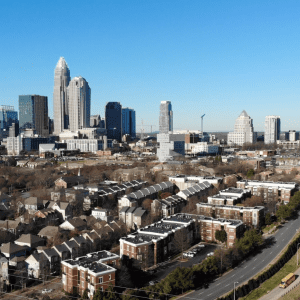
Housing First works: Report sheds light on program to end homelessness
In the shadow of COVID-19, it’s easy to lose sight of the strides Charlotte-Mecklenburg has made to address chronic homelessness. Housing First Charlotte-Mecklenburg (HFCM) was launched in 2015 to end chronic homelessness in Charlotte-Mecklenburg by scaling housing first, particularly by expanding the housing first permanent supportive housing model. Through HFCM and the continued work of […]
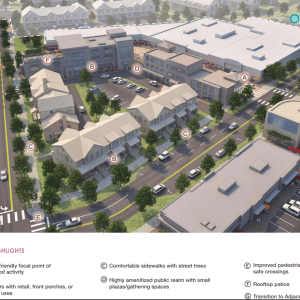
A glimpse at Charlotte’s future from a piece of the past
It probably wasn’t the setting Charlotte planners would have picked to unveil their vision for the future: A parking lot off Independence Boulevard, acres of scarred asphalt surrounded by a tangle of some of the city’s least pedestrian-friendly streets. But in the wake of the covid-19 pandemic, an in-person event at a densely packed brewery […]

Join us: A conversation about issues impacting our communities
UNC Charlotte in collaboration with the UNC Press presents: ‘As a Matter of Fact’ – Conversations with UNC Press Authors Join Dr. Keeanga-Yamahtta Taylor, Assistant Professor of African American Studies at Princeton University, on Nov. 12, at 6 p.m. in conversation with UNC Charlotte’s Dr. Lori Thomas about Taylor’s 2019 book, Race for Profit: How […]

Savings, investment and racial wealth gap over generations
This is the sixth article in an ongoing series, based on a report by the Urban Institute. The report was compiled with support from Bank of America, which partners with the UNC Charlotte Urban Institute and the Institute for Social Capital on research that provides insight into community initiatives. Join us Wednesday at 7:30 p.m. […]
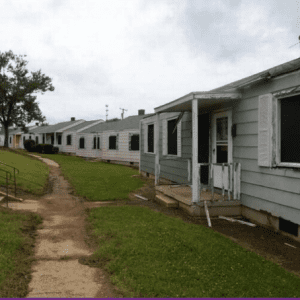
Residents wait to see if they can stay in fast-changing South End
Debbie Williams grew up in Charlotte’s Brookhill Village, a neighborhood of one-story duplex and triplex apartments built for black families in the 1950s. She has watched while its owners let the buildings deteriorate as luxury apartments began rising nearby. Two decades ago, she moved away. But her mother and sister remained in the low-rent housing […]

The racial wealth gap: Business ownership & entrepreneurship
We recognize the killings of George Floyd, Ahmaud Arbery and Breonna Taylor are connected to the same systemic and institutional racism that created and sustains the racial wealth gap. We recognize that addressing racial violence and the racial wealth gap is dependent on systemic and structural solutions rather than the individual solutions that have placed […]

How jobs contribute to the racial wealth gap
This is the fourth in an ongoing series, based on a report by the Urban Institute. The report was compiled with support from Bank of America, which partners with the UNC Charlotte Urban Institute and the Institute for Social Capital on research that provides insight into community initiatives. Join us Wednesday at 7:30 p.m. on […]
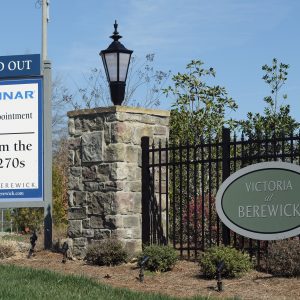
Home ownership and the legacy of redlining
This is the third in an ongoing series, based on a report by the Urban Institute. The report was compiled with support from Bank of America, which partners with the UNC Charlotte Urban Institute and the Institute for Social Capital on research that provides insight into community initiatives. Join us Wednesday at 7:30 p.m. on […]
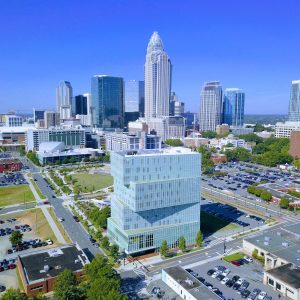
Gambrell Faculty Fellows program returns to fund studies of the Charlotte region
The UNC Charlotte Urban Institute, with support from the Gambrell Foundation, is preparing to launch the second cohort of faculty fellows to study pressing issues in the Charlotte region. The program will fund five projects this year, up to $15,000 each. The first cohort of fellows includes faculty from five colleges studying issues such as […]